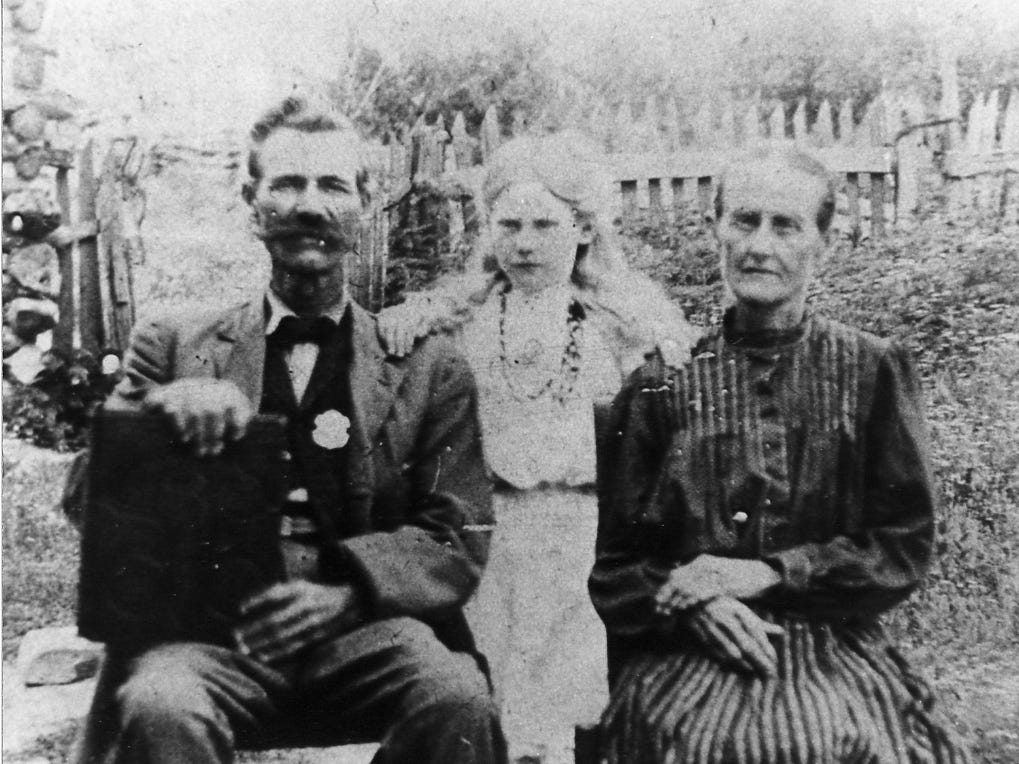The Challenges (and Rewards) of Generational Stories
Inspiration for the short story "A Dangerous Road"
It’s been a minute (or maybe a few months) since my last post. Might as well dive in!
One thing I wish I had done more often was listen to my grandparents’ generational stories. In one such story, my grandmother had mentioned that some relatives got in a bloody fight over a tree, and “by gawd that tree never did get cut down.” In her later years, and especially after her passing, I thought it was high time I found out more of what caused this tree incident. I owed her that much, at least. This is when I learned how difficult, yet rewarding, generational stories can be.
First, I had to define my project’s purpose
I had to decide if I wanted to focus on facts or lessons. I picked both… facts to shape the context, and lessons to give the story life. I was looking for non-fiction, and writing fiction inspired by real people/events.
Challenges
People will readily share conflicting information, as long as it’s interesting
In researching “A Dangerous Road”, I found so much hearsay and misinformation (especially being shared on Ancestory.com) that it was difficult to figure who was a hero and who was a villain. The truth is often somewhere in the middle.
Stories passed down are alive, in a way, and are therefore susceptible to change
A teller may embellish, forget, emphasize, or add pieces, etc. In many cultures, this can be a good thing, but if you’re looking for just the facts and not the lesson, it can muddy the waters.
Imagine the game of “telephone”, in which groups of people must pass information to one-another down the line of the entire group, and see if the original information is still intact at the end.
Often, a story starts with some tidbit of drama passed down by word of mouth for generations until it becomes mythical in proportion.
Stories from only one point of view can color the entire situation
I found that nearly each medium (word of mouth, newspapers, letters, folklore, etc.) had a strong slant. Combining all of those to find the facts was necessary, and even then I won’t know everything. Also, with a short story like this, it’s my job to show the reader how the characters view events without jumping around to different POVs (point of views).
Mistakes will happen
Sometimes when I miss a key detail, it is tempting to beat myself up, but there is always a lesson to be learned!
As the short story A Dangerous Road formed in my head, I’d immediately thought the tree Joseph Walker sought to save was an oak tree. Yet, somehow I convinced myself that was silly and generic, and I went with a pine tree. Perhaps he’d have saved it from the ravishes of the railroad.
Turns out my first instinct was mostly likely correct! After further discussion with descendants, it appears to have been a Witness Oak all along.
I’ll write more about that tree next month…
Rewards
While generational stories are not complete factual accounts, they are still incredibly valuable. These stories:
Connect us to each other through generations. I wish so badly that I could listen to my grandmother’s stories again. If you or your kids have the opportunity to do something like that, please do!
Connect us with extended family. Writing and researching this story has brought me in contact with many fellow descendants who are just as passionate about their history. I didn’t have to write anything to find them, either. I just had to look.
Contain essential life lessons. The application of these lessons can change over time, as culture and technology progress.
Have entertainment value.
Give a starting point for more research. Enjoy that rabbit hole!
Provide clues, often through half-truths, that are essential for putting a history puzzle together.


